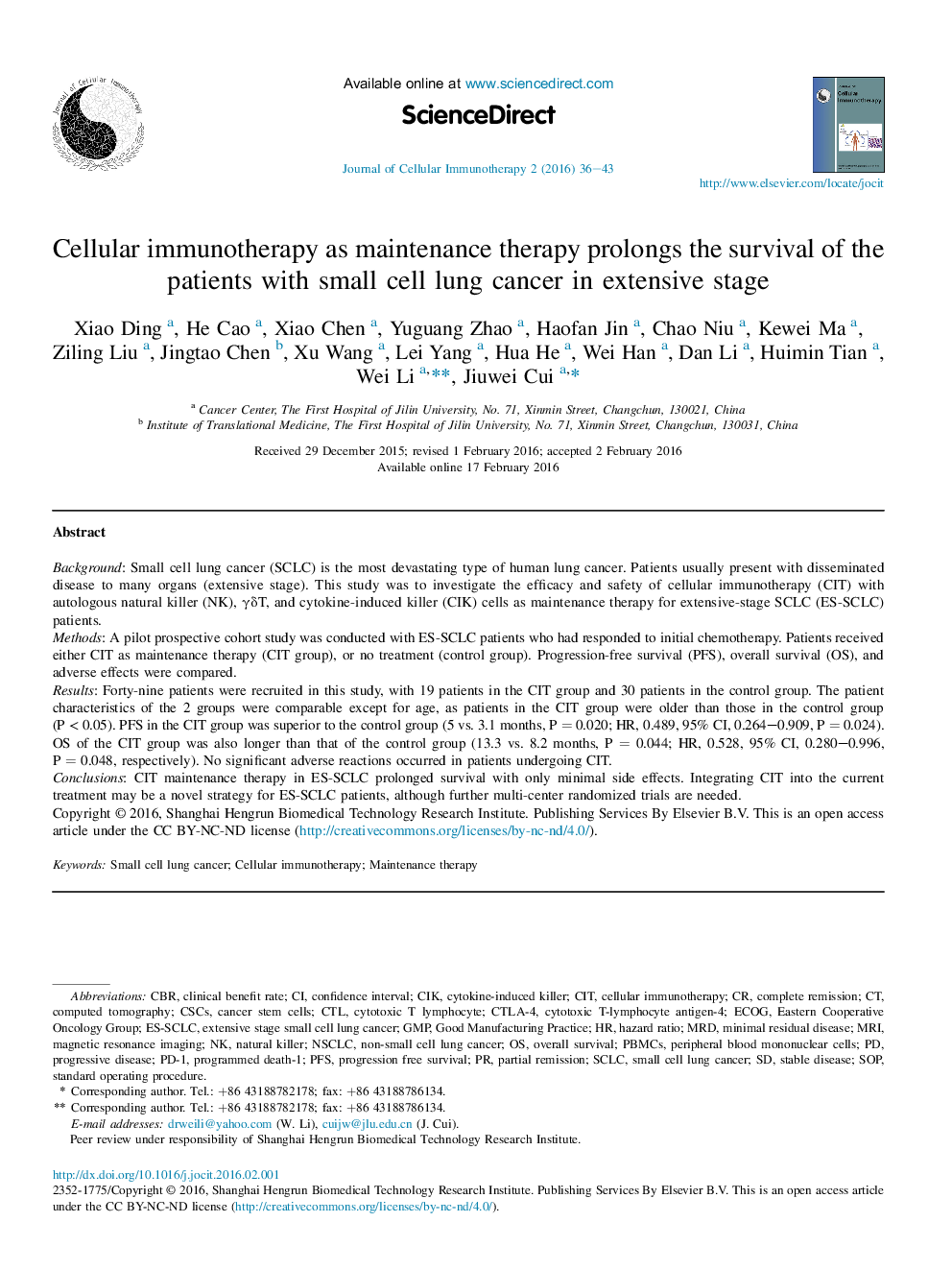| Article ID | Journal | Published Year | Pages | File Type |
|---|---|---|---|---|
| 2136271 | Journal of Cellular Immunotherapy | 2016 | 8 Pages |
BackgroundSmall cell lung cancer (SCLC) is the most devastating type of human lung cancer. Patients usually present with disseminated disease to many organs (extensive stage). This study was to investigate the efficacy and safety of cellular immunotherapy (CIT) with autologous natural killer (NK), γδT, and cytokine-induced killer (CIK) cells as maintenance therapy for extensive-stage SCLC (ES-SCLC) patients.MethodsA pilot prospective cohort study was conducted with ES-SCLC patients who had responded to initial chemotherapy. Patients received either CIT as maintenance therapy (CIT group), or no treatment (control group). Progression-free survival (PFS), overall survival (OS), and adverse effects were compared.ResultsForty-nine patients were recruited in this study, with 19 patients in the CIT group and 30 patients in the control group. The patient characteristics of the 2 groups were comparable except for age, as patients in the CIT group were older than those in the control group (P < 0.05). PFS in the CIT group was superior to the control group (5 vs. 3.1 months, P = 0.020; HR, 0.489, 95% CI, 0.264–0.909, P = 0.024). OS of the CIT group was also longer than that of the control group (13.3 vs. 8.2 months, P = 0.044; HR, 0.528, 95% CI, 0.280–0.996, P = 0.048, respectively). No significant adverse reactions occurred in patients undergoing CIT.ConclusionsCIT maintenance therapy in ES-SCLC prolonged survival with only minimal side effects. Integrating CIT into the current treatment may be a novel strategy for ES-SCLC patients, although further multi-center randomized trials are needed.
